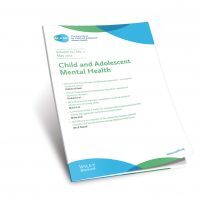gender
-

Let’s Talk About the Need to Invest in Women Researchers and Leaders
Every International Women’s Day, there is a call to retain talented women in Science, Technology, Engineering, and Mathematics (STEM) fields, with strategies and proposals often given by influential organisations such as the United Nations. These proposals aim to steer improvement in workplace cultures and environments, and champion equity in the opportunities available to women across fields. The theme of this year’s United Nations International Women’s Day is “Invest in women: Accelerate progress.” This blog discusses the leaky STEM pipeline with a focus on why we need to invest in women researchers, and sharing my own experiences as a woman pursing mental health research.
Read more -

#InspireInclusion: Addressing the Undue Service Burden Placed on Women Faculty in Psychology
Psychology is often highlighted as a STEM field that has “overcome” the gender gap present in academia; while it is true that significant progress has been made in our field over the last 20 years, gender gaps still remain with regard to service responsibilities. This burden is one contributor to the well-established differences in publication and grant rates and the under-representation of women at the full professor level. This blog highlights literature on this topic and some strategies for overcoming this undue service burden.
Read more -

Sustaining Equity, Retaining Talent: Tackling Systemic Inequity for Women in Science and Research
11 February was established in 2015 as the International Day of Women and Girls in Science to recognize us as agents of change, yet women are still underpaid and undervalued for the work they do. Women are continually subjected to systems that actively make our workforce weaker due to excluding women from leadership in science and research. This blog will provide background and recommendations for institutional change to support women in science.
Read more -

CAMH Editorial: Volume 28, Issue 2, May 2023
CAMH May 2023 Editorial is now available to read.
Read more -

Phenomenology of Gender Dysphoria in Autism
In this ‘Papers Podcast’ episode, we are joined by Dr. Kate Cooper to discuss her JCPP paper ‘Phenomenology of gender dysphoria in autism: a multiperspective qualitative analysis’. Kate is the first author of the paper.
Read more -

Adolescent gender diversity: sociodemographic correlates & mental health outcomes
In this podcast, we are joined by Assistant Professor Akhgar Ghassabian and Dr. Tonya White to discuss their co-authored JCPP paper ‘Adolescent gender diversity: sociodemographic correlates and mental health outcomes in the general population’.
Read more -

Does early androgen exposure contribute to autistic traits?
Researchers in Hong Kong and Cambridge have explored the influence of early androgen exposure on autistic traits during childhood.
Read more -

Is infant empathy linked with later externalizing problems?
Until recently, it has been assumed that young infants cannot feel empathy for others.1 However, emerging data suggest that this might not actually be the case.2 Now, Yael Paz and colleagues have examined empathy development during the first years of life, analysing data from 165 infants involved in a longitudinal, prospective study.
Read more -

Gender identity is not as simple as ABC(D)
Alexandra Potter and colleagues in the USA have used data collected as part of the longitudinal Adolescent Brain Cognitive Development (ABCD) US cohort study to examine associations between diverse gender experiences and mental health.
Read more -

Gender Diversity
Research Digests about Gender Diversity, including anxiety risks, self-image and affirmative care.
Read more
